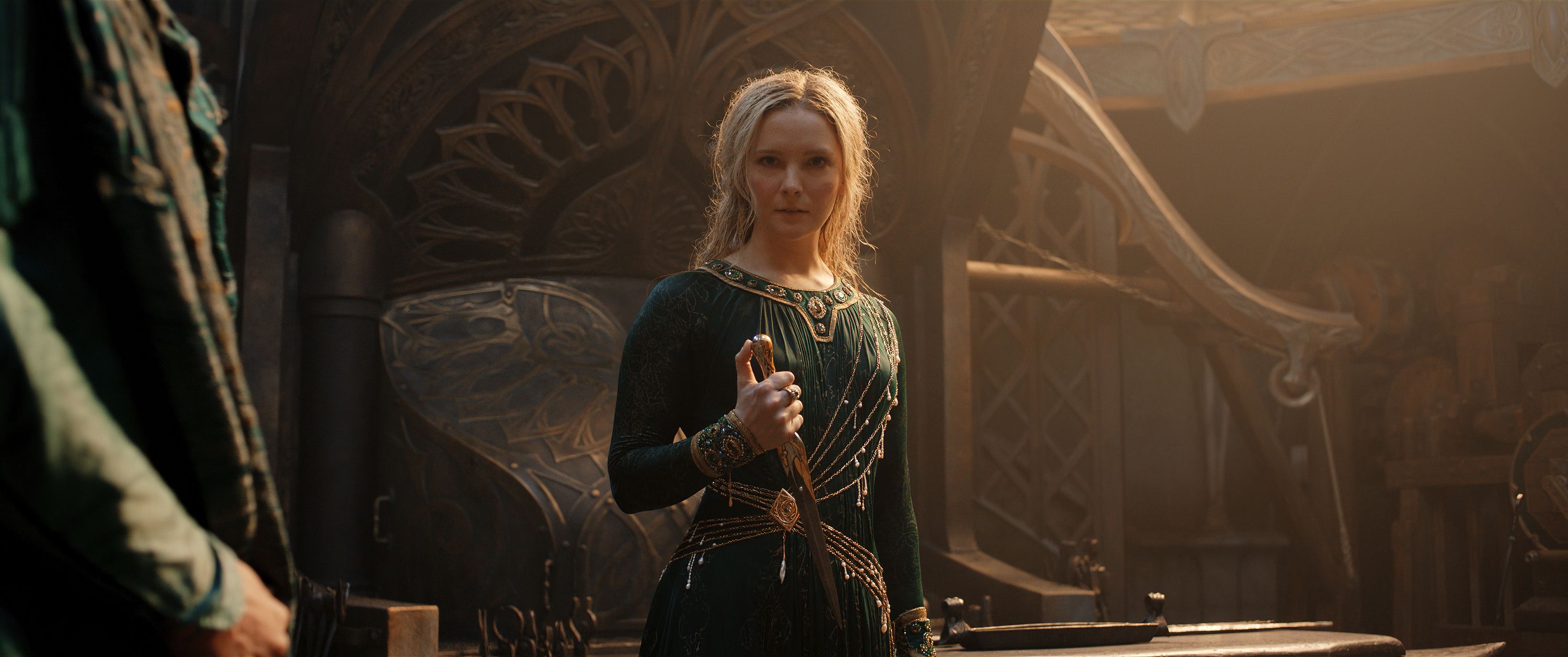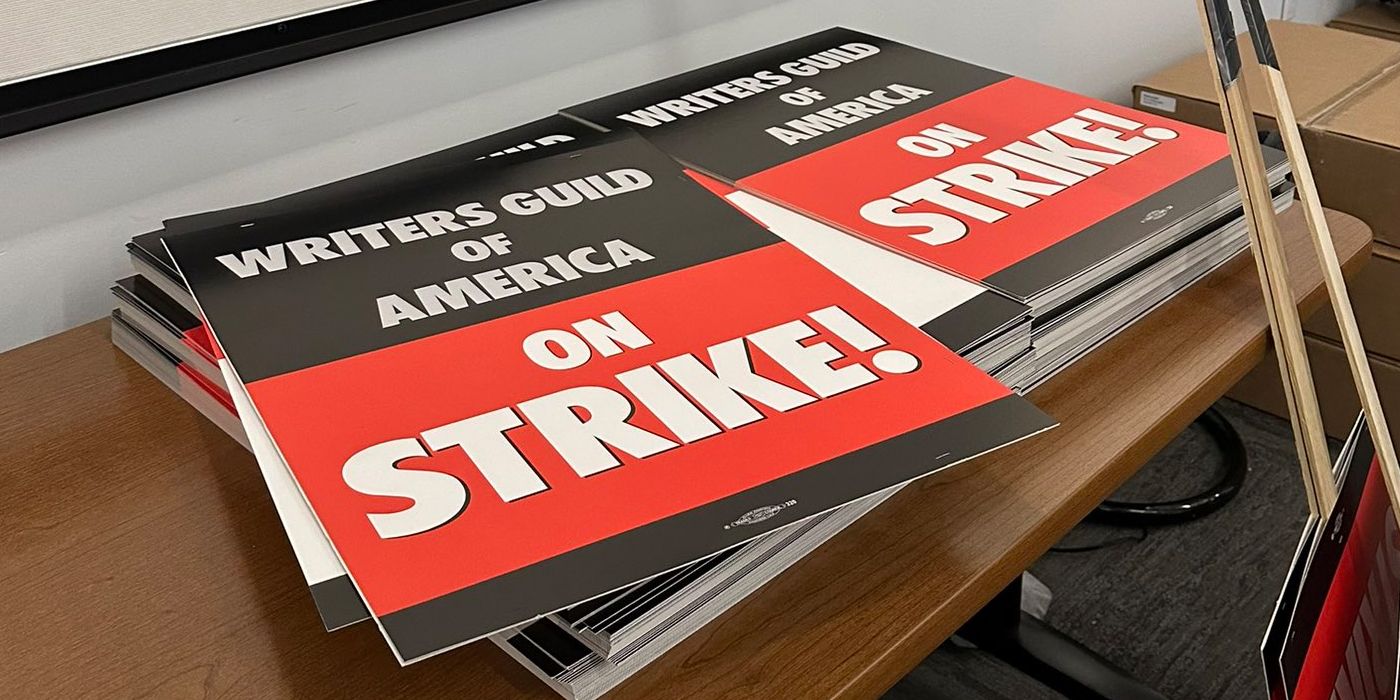Production of numerous popular TV shows has come to a grinding halt in recent weeks as a direct result of the ongoing Hollywood writers strike. New installments of The Last Of Us and Abbott Elementary are now delayed, while regular programming of late-night talk shows such as Late Night with Seth Meyers, The Tonight Show Starring Jimmy Fallon, and Last Week Tonight with John Oliver have been interrupted since the strikes began in early May. Pre-production of the much anticipated Marvel movie Blade has also been put on pause as the strike begins to affect film as well as television production.
It is now more important than ever to understand the vital role writers play in producing onscreen entertainment. A writer’s job continues even when filming begins, so shows that are still being made during the strikes will suffer from the absence of writers on set. Writers belong on a TV set as much as directors, sound managers, and make-up artists, as their absence is likely to jeopardize the final quality of a show.
Why Has the WGA Decided To Call A Strike?
The Writers Guild of America (WGA), representing around 11,500 screenwriters, decided to take strike action after disagreements with Hollywood studio representatives, represented by the Alliance of Motion Picture and Television Producers (AMPTP). There are many reasons for the strike, and one of the key issues surrounds a deflation in pay as more and more television is written for streaming services instead of traditional networks.
Writers also wish to preserve the physical concept of a writers room, where a minimum staff of six writers should be guaranteed work for at least ten consecutive weeks. Some television productions have begun to rely on mini-rooms to write their scripts, where these rooms consist of fewer writers than a full-sized team. These reduced teams are usually only paid a minimum wage, and are often not employed for the duration of the show’s production. This is something that striking writers wish to change as part of a new agreement.
The third major cause of the strike is that writers are determined to secure protection from developments in AI technology, which would prevent studios from using AI to create scripts or to rewrite existing projects. Reaching an agreement on this and other key points will help to safeguard the screenwriting profession for future generations, regardless of how technology develops. These measures are also necessary to support a continued high-quality output of entertaining content for everyone to enjoy.
Why Would Shows Film Without Writers?
If a show utilizes mini-rooms for their writing, then writers may be released from their contracts before filming begins, meaning there are no script experts and creators on site from beginning to end of production. Additionally, some shows are continuing production during the writers strike in the even that they may have previously submitted scripts to work with. One high-profile example of this is Season 2 of The Lord of the Rings: The Rings of Power, which will continue filming without its showrunners or writer-producers on set.
If a production is filming without writers, whether due to strikes or the use of mini-rooms, then the standard of production will undoubtedly be affected, as writers contribute to a project long after the initial script-writing stage. Matt and Ross Duffer, the Stranger Things creators, drew attention to this in a tweet from May 6, where they confirm that work on Season 5 of the show will draw to a halt during the strikes:
This reference to a continual writing process encapsulates the importance of retaining writers on a production. It is not simply enough to churn out a script and hand it over to the film crew. A script is a live piece of text that should change and grow organically as filming takes place, when last-minute edits and re-writes make for a better show as the end product. Often a story unravels differently in real time than it would do on the page, necessitating creative changes that bring a show to life. Without writers on set, these issues can be overlooked, resulting in a clunky and uninspired final product.
An Absence of Writers Harms the Creative Process
Ultimately, the writers are the people on set who know the script best. Often a television director will not have the time to study the entire season’s script before filming the first episodes, where writers will have the knowledge to suggest ways to set up and foreshadow later plot developments. They understand how episodes work together, and so can offer advice on tone, blocking, and direction in order to create a show that is cohesive from start to finish.
Having writers on set also allows for an organic symbiosis to take place. Production teams can learn from writers, but writers can also learn by noting the way that a show is filmed and created. Seeing how shots are set up and direction is given can assist in the writing of future scripts, where teams will start to work more effectively as a result. This allows early-career writers to learn more about their craft, helping to support creative innovation for future generations.
The 2023 WGA strike is still happening, and continued disruptions and delays are to be expected. Some United States productions are even packing up and heading to film in Canada. It is still not clear exactly how long it will last, but the duration of previous WGA action indicates that the strike could be long-running. The 2007/2008 WGA strike lasted 100 days, while the union’s longest on record strike lasted for 153 days in 1988. It is hoped that this dramatic halting of numerous popular shows will result in a better standard of employment for Hollywood’s scriptwriters, which will ultimately safeguard the creation of exciting must-watch content for years to come.
Stay connected with us on social media platform for instant update click here to join our Twitter, & Facebook
We are now on Telegram. Click here to join our channel (@TechiUpdate) and stay updated with the latest Technology headlines.
For all the latest TV News Click Here


